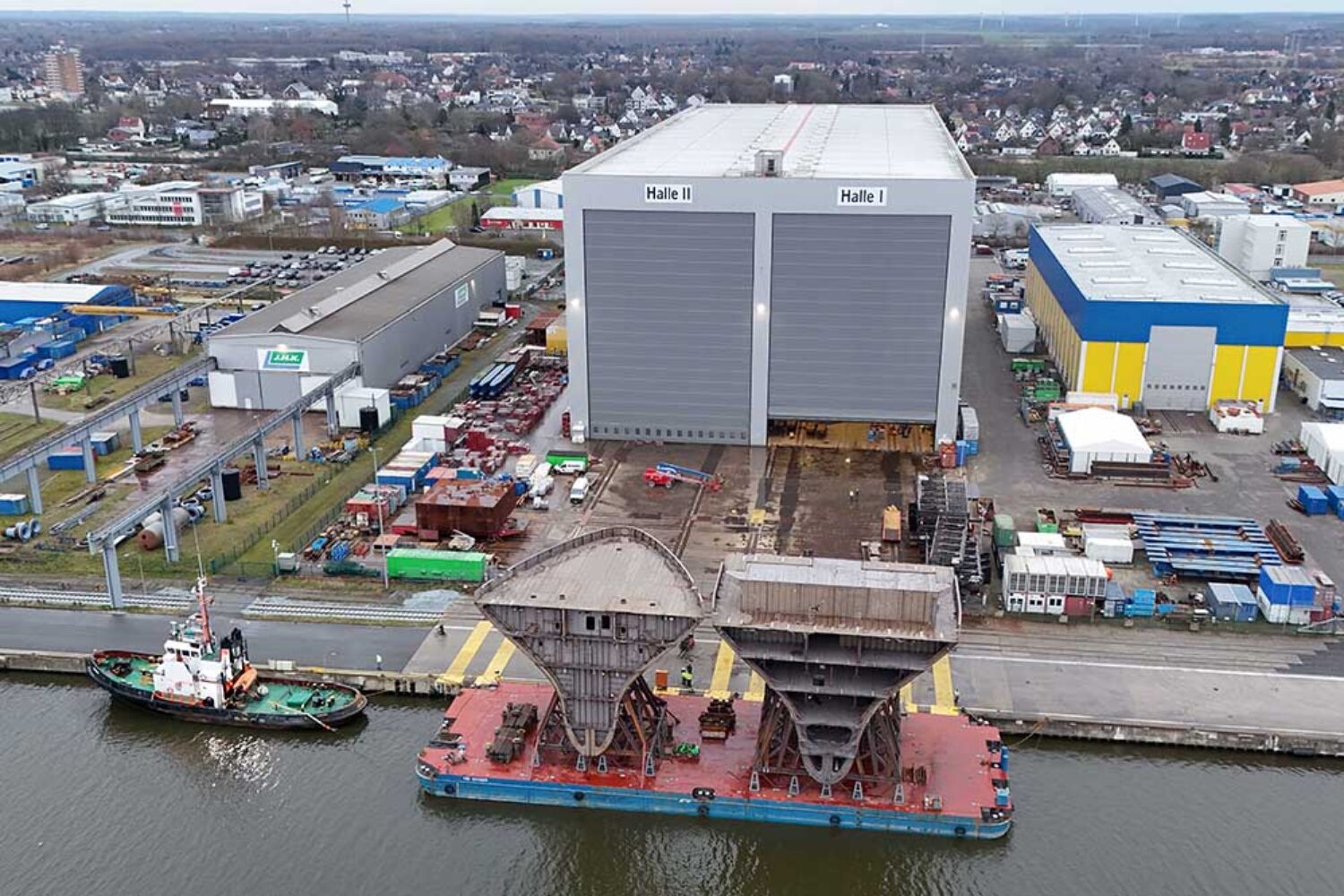The company Stahlbau Nord (SBN), which belongs to the Bremerhaven-based Rönner Group, has now produced two further sections for the German Navy’s second, as yet unnamed, fuel tanker in the city’s fishing port.
The sections weigh around 415 and 680 tons, respectively, and are 24 metres high. They were loaded onto the Polish heavy-duty pontoon “TRD Voyager” last weekend.
This will then be transferred to Rostock-Warnemünde by the tugboat “Leopard” over the next few days. The two fuel tankers are being built at the Neptun shipyard there under subcontract to the Meyer Group. In recent weeks, Stahlbau Nord had already produced several so-called ring sections in the “Lunehalle”, which were then loaded onto a heavy-duty pontoon from the Leer-based company Ems Offshore.
According to port circles, these were the last blocks for the second naval fuel tanker to be manufactured by Stahlbau Nord. Originally, the order was to be processed by the ailing FSG shipyard in Flensburg. SBN is said to have received the order for the four blocks, including an engine room module, from Neptun Werft in the spring.
The keel for the first of two new fuel tankers for the German Navy was laid last year at Neptun shipyard in Rostock-Warnemünde. These will replace the outdated class 704 ships “Rhön” and “Spessart”, which have been in service since 1977.
More than €900m for naval tankers
More than €900m will be invested. Each of the new Class 707 tankers can take around 12 million litres of fuel onboard and refuel up to two warships at sea at the same time. The new tankers meet modern environmental standards and have double outer hulls that prevent the ship’s diesel from leaking out of the tank storage facilities on board in the event of an accident.
The ships also emit fewer pollutants than their predecessors thanks to a modern exhaust system. Compared to their predecessors, the newbuilds also have significantly larger superstructures to accommodate up to 42 crew members and 23 embarked soldiers or passengers. There is no armament or special military equipment for cost reasons.
The two 173-metre-long units cost around €914m – including spare parts, special tools and training. The contract was awarded to Naval Vessels Lürssen, which in turn brought the Meyer Werft Group on board as a subcontractor. The first Class 707 tanker is due to be delivered to the navy in the first quarter of 2025, with the second to follow a year later in the first quarter of 2026.
The Bundestag Budget Committee approved the procurement project in June 2021, as the old Class 704 tankers will reach the end of their service life in August 2026. The new vessels are also to be used for several decades. With its procurement, the Bundeswehr is also fulfilling a commitment to the NATO (North Atlantic Treaty Organisation): Germany has assured the alliance that it will provide two ships with the ability to supply fuel at sea until 2040. (CE)













